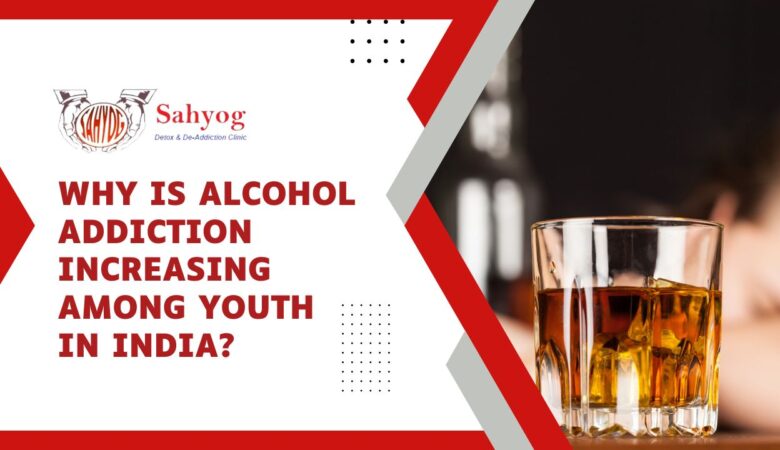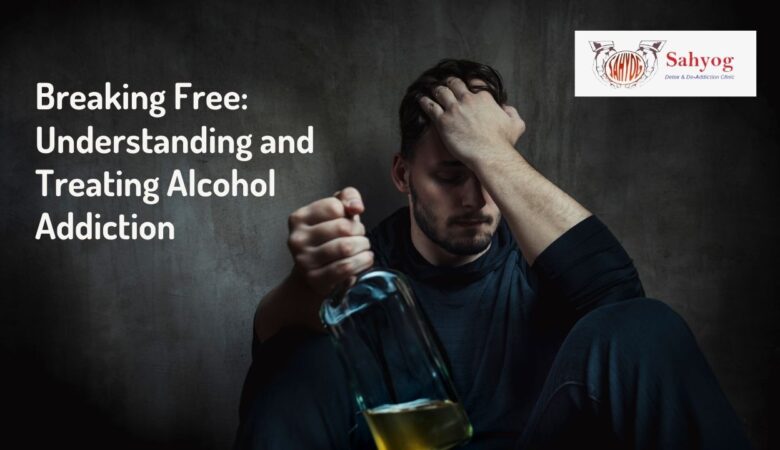Why is alcohol addiction increasing among youth in India?
Introduction to the issue of alcohol addiction among youth in India Step into the bustling streets of India, where a silent epidemic is sweeping through the nation’s youth – alcohol addiction. As societal norms shift and pressures mount, more and more young people are finding solace in the bottle. Let’s delve into the complex web of factors fueling this troubling trend and explore how we can turn the tide against this growing crisis. The cultural and societal factors contributing to the rise of alcohol addiction In a country like India, where social gatherings and celebrations often involve alcohol, it’s no surprise that youth are increasingly falling prey to alcohol addiction. The cultural acceptance of drinking as a way to unwind or bond with others plays a significant role in normalizing excessive drinking habits among the younger population. Moreover, societal pressures such as academic stress, peer influence, and the desire to fit in contribute to the growing trend of alcohol abuse among youth. With easy access to alcohol through liquor stores and bars, coupled with limited restrictions on underage drinking, the temptation becomes even harder for young individuals to resist. Additionally, the portrayal of alcohol consumption in movies and media glamorizes drinking culture, leading impressionable youths to believe that consuming alcohol is essential for enjoyment and social acceptance. This constant exposure desensitizes them to the potential risks and consequences associated with excessive drinking behaviors. The impact of peer pressure and social media on youth drinking habits Peer pressure and social media play a significant role in shaping the drinking habits of youth in India. The desire to fit in and be accepted among peers often leads young individuals to engage in alcohol consumption, even if they may not truly want to. Social media platforms further exacerbate this by glamorizing drinking culture and normalizing excessive alcohol consumption through influencers and advertisements. With the rise of influencer marketing promoting alcohol brands, young people are constantly bombarded with images portraying alcohol as a symbol of fun and sophistication. This constant exposure can desensitize them to the risks associated with heavy drinking and create unrealistic expectations about its effects. Moreover, peer groups on social media platforms can create an environment where consuming alcohol is seen as a rite of passage or a way to boost one’s social status. The fear of missing out (FOMO) drives many youths to partake in drinking activities just to feel included or keep up with their online circle. As a result, many young individuals find themselves trapped in a cycle of binge drinking influenced by their peer groups both offline and online. It’s essential for parents, educators, and society at large to address these influences proactively by fostering open conversations about responsible drinking habits rather than succumbing blindly to external pressures. Lack of awareness and access to effective prevention and treatment methods Lack of awareness and access to effective prevention and treatment methods is a significant challenge contributing to the increasing alcohol addiction among youth in India. Many young individuals may not fully understand the risks associated with excessive drinking or know where to seek help if they are struggling with addiction. In some cases, societal stigma surrounding mental health issues and substance abuse can prevent youths from reaching out for support. This lack of open dialogue about alcoholism can further isolate those in need of assistance, making it harder for them to break free from their dependence on alcohol. Furthermore, limited availability of accessible and affordable treatment options adds another layer of complexity to this issue. Without proper resources or guidance, many young people find themselves trapped in a cycle of addiction without knowing how to escape it. Addressing these gaps in awareness and accessibility is crucial in combating the growing trend of alcohol addiction among Indian youth. Efforts towards education, destigmatization, and improved healthcare services are essential steps towards creating a healthier environment for our future generations. Government policies and initiatives addressing the issue The Indian government has recognized the pressing need to tackle alcohol addiction among youth. Various policies and initiatives have been put in place to address this growing concern. One such measure is stricter regulations on the sale and advertisement of alcohol, especially targeting the younger population. By restricting access and exposure, the hope is to reduce temptation and influence. Additionally, awareness campaigns are being rolled out nationwide to educate young people about the dangers of excessive drinking. These initiatives aim to shift attitudes towards alcohol consumption and promote healthier lifestyle choices. Furthermore, support services and treatment facilities are being expanded to provide assistance for those struggling with addiction. The focus is not only on prevention but also on rehabilitation and recovery for individuals in need of help. These government efforts signify a step in the right direction towards combating alcohol addiction among youth in India. Personal stories and experiences of individuals struggling with alcohol addiction Alcohol addiction doesn’t discriminate – it affects people from all walks of life. Behind the statistics are real stories of individuals battling their dependency on alcohol. Some may have turned to drinking as a coping mechanism for stress or trauma, while others fell into the trap due to peer influence or societal pressures. The struggles faced by these individuals are often hidden behind a facade of normalcy. The impact of alcohol addiction reaches far beyond the individual, affecting relationships, careers, and overall well-being. It’s a constant tug-of-war between wanting to break free from the cycle and succumbing to cravings. For many, seeking help can be daunting due to fear of judgment or lack of accessible resources. However, every story is unique in its journey towards recovery – filled with ups and downs, setbacks and triumphs. By shedding light on these personal experiences, we can foster empathy and understanding towards those grappling with alcohol addiction. It’s crucial to support each other through compassion and encouragement on this challenging path towards healing. I am one of those people who never thought I would have a problem with alcohol. Growing up,


